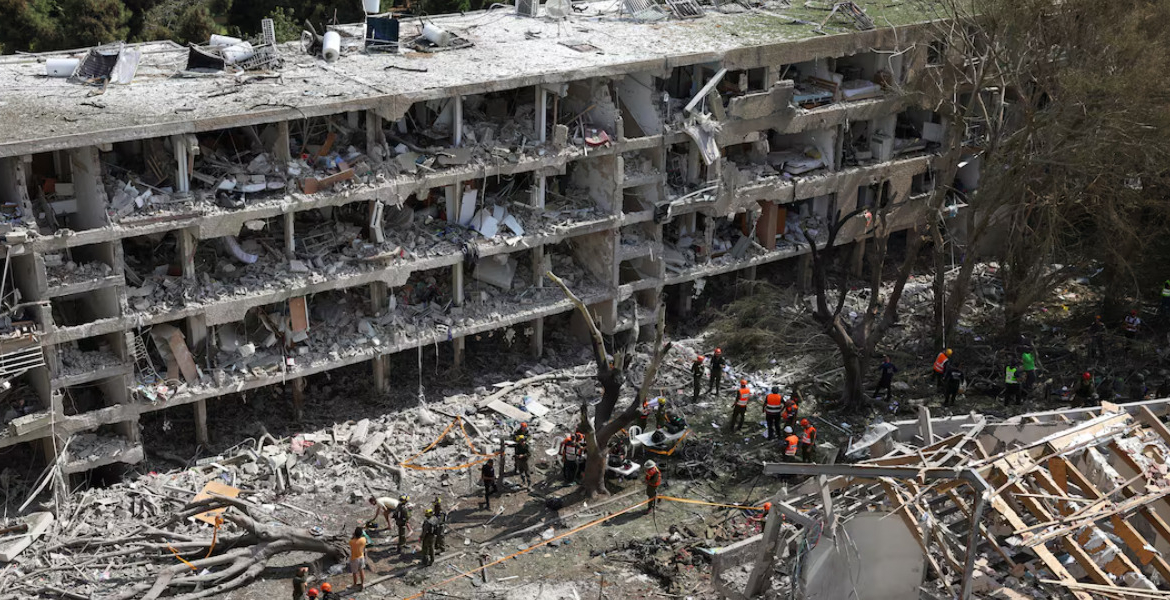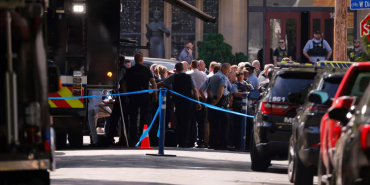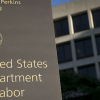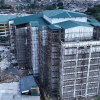Iran Launches Missile Barrage on Israel After US Strikes Nuclear Sites

A major escalation of tensions in the Middle East has unfolded as Iran launched a large-scale missile assault on Israel in retaliation for a series of United States airstrikes targeting key Iranian nuclear facilities.
The coordinated attacks represent a significant turning point in the protracted conflict between Tehran and Tel Aviv, with the United States now actively engaged in military operations against Iran. The Iranian missile barrage, identified as "Operation Honest Promise 3," saw at least 40 projectiles launched by the Islamic Revolutionary Guard Corps (IRGC) impacting multiple Israeli cities, including Tel Aviv, Jerusalem, and Beersheba. Air raid sirens blared across Israel as the Iron Dome and other air-defense systems engaged to intercept the incoming missiles.
Despite these efforts, several missiles evaded interception, resulting in widespread damage and casualties. Emergency services have reported dozens of injuries and at least 25 fatalities since hostilities reignited on June 13. The Iranian offensive was launched shortly after US President Donald Trump announced a series of precision strikes on Iran's nuclear infrastructure, describing it as a "spectacular military success."
The targets included the Fordow enrichment facility, as well as sites in Isfahan and Natanz, all critical to Iran's uranium enrichment program. Flanked by senior administration officials, Trump warned Tehran against retaliation, saying, "If peace does not come quickly, we will go after those other targets with precision, speed, and skill."
Iran's Foreign Minister Abbas Araqchi, speaking from Istanbul, condemned the US strikes as a flagrant violation of international law. He asserted that "Iran reserves all options to defend its sovereignty, interests, and people." Araqchi added, "The US showed they have no respect for international law. They only understand the language of threat and force."
He confirmed that Iran would only consider diplomatic engagement after delivering its military response. Iranian state media reported that the missile strikes targeted Israeli military and strategic infrastructure, including Ben Gurion Airport, a biological research center, and various command and control hubs, utilizing both liquid and solid-fuel ballistic missiles. Satellite imagery reviewed by international observers indicated damage at the Fordow site, although the full extent remained unclear due to restricted communications within Iran.
In Tel Aviv, the aftermath was grim, with residential buildings reduced to ruins and emergency crews sifting through debris. Residents emerged from bomb shelters to scenes of devastation. Aviad Chernovsky, a resident whose home was destroyed in a direct hit, said, "It's not easy to live now in Israel, but we are very strong. We know that we will win."
The Israeli military responded with a fresh wave of airstrikes targeting missile launchers and military personnel in western Iran. The Israel Defense Forces (IDF) confirmed that launchers responsible for the recent attacks had been neutralized. However, the scale and speed of Iran's retaliation suggested that further escalation was likely. The IRGC warned that it had yet to deploy the full extent of its missile capabilities, hinting at a prolonged campaign.
The United Nations' International Atomic Energy Agency (IAEA) confirmed that, despite the strikes on nuclear facilities, there was no reported increase in off-site radiation levels. An emergency meeting of the IAEA's 35-nation board was scheduled to assess the implications of the attacks. Iran's Atomic Energy Organisation insisted that the country's nuclear ambitions remained peaceful and that it would not allow its "national industry" to be dismantled.
Iran maintains that its nuclear program complies with the Non-Proliferation Treaty, although the IAEA recently concluded that Tehran had violated several of its obligations. Western nations, particularly the United States and Israel, have long accused Iran of covertly pursuing nuclear weapons capabilities, a claim Tehran denies. The broader regional implications of the conflict are profound. Gulf Arab states, many of which have sought to ease tensions with Iran in recent years, express alarm at the rapid deterioration of stability. With a quarter of the world's oil shipments passing through the Strait of Hormuz, any disruption could have severe global economic consequences.
Inside Iran, the mood is one of fear and uncertainty. Civilian casualties mount as Israeli airstrikes continue to pound Tehran and other major cities. Iranian state media, which initially broadcast images of the destruction, has since curtailed coverage. Much of the capital has emptied, with residents fleeing to rural areas. A teacher from Kashan, Bita, said, "Our future is dark. We have nowhere to go, it's like living in a horror movie," before her phone line was cut.
The United States' decision to intervene militarily marks a significant shift in its Middle East policy. Trump's administration, which has oscillated between diplomatic overtures and threats of force, now appears committed to a more aggressive stance. Analysts describe the move as the most consequential foreign policy gamble of Trump's presidency. While he insists that regime change is not the objective, the scale of the strikes and the rhetoric surrounding them suggest otherwise.








Add new comment